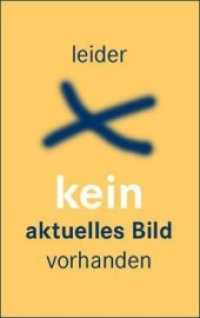Full Description
Fragments are central to the work of medievalists. Whether caused by destruction, decay, or the loss of context, fragmentation shapes how scholars reconstruct and interpret the Middle Ages. In the study of medieval visual culture especially, fragments evoke lost monuments, damaged manuscripts, and vanished rituals—yet their evidentiary role is often overlooked or assumed rather than critically examined.
This volume brings together seven essays that examine the risks and rewards of working with fragments in the study of medieval culture. Developed from a scholarly conference at the Index of Medieval Art, the chapters examine how incomplete material, pictorial, textual, ritual, and conceptual objects have been interpreted, reconstructed, or newly understood over time. Topics include the medieval reframing of earlier fragments, the politically motivated interpretation of fragments to rewrite a lost past or fabricate a new future, market-driven deceptions of the consumer, and the challenges of decoding how fragments of all kinds speak to those who view and study them today.
A valuable resource for scholars of medieval art, history, and material culture, this collection addresses the fundamental methodological challenges of studying the Middle Ages through incomplete evidence. Offering fresh insights into how fragments are perceived and repurposed across time, it encourages critical reflection on the fragment as both obstacle and opportunity in reconstructing medieval worlds.
In addition to the editors, the contributors include Patricia Blessing, William Diebold, Shirin Fozi, Silvia Gianolio, Gregor Kalas, Henry David Schilb, and Susanne Wittekind.





